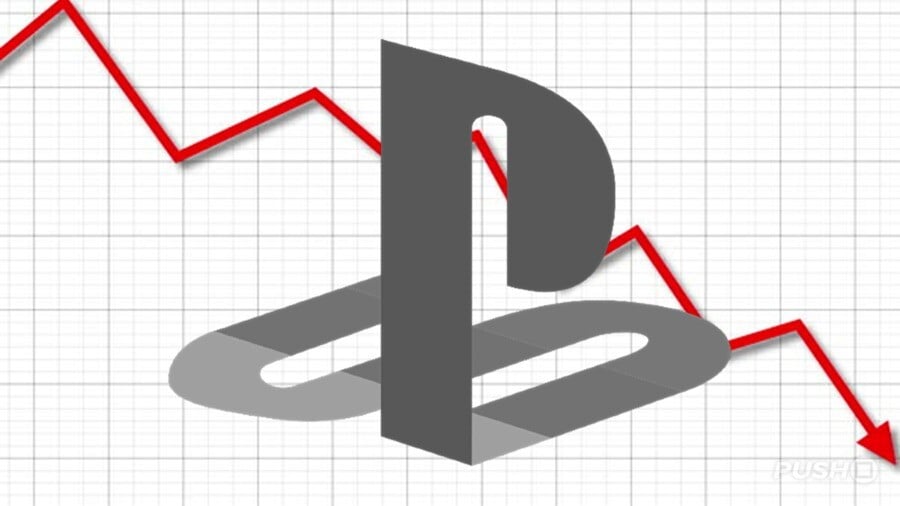Sony’s gaming division is, in some aspects, firing on all cylinders. The Japanese giant is raking in record revenues , and while it’s had to scale back its hardware sales targets , its current goal of 21 million units in the current fiscal year is no slouch. It’d be easy to overreact and paint PlayStation as a failing business, but that doesn’t reflect reality; there’s a lot of good among the bad.
The division’s big problem is that it’s spending almost as much as it’s making. In its most recent financial report , it registered record-breaking revenue of ~$10.2 billion, only to a turn a profit of just ~$608 million. The optimistic viewpoint here is that it’s a profitable business overall, but with margins as razor-thin as this, the firm is effectively one misstep away from plunging itself into the red. That’s not healthy.
This is why we’re seeing seismic changes across the business, many of which have been poorly received by fans. The firm’s push for successful live service games could guarantee ongoing revenue, although it’s important to remember that the costs associated with maintaining these titles is also high. Nevertheless, companies like HoYoverse are making bigger profits than PlayStation right now .
The division is also trying to expand beyond the boundaries of its own ecosystem, releasing software on PC and making plans to expand to mobile. The reality is that while the costs associated with creating blockbuster games like God of War and The Last of Us have dramatically increased, the size of the console install base has not; PS5 is unlikely to sell more units overall than PS4, for example.
This is one reason why we’ve seen the prices of software increase from $59.99 to $69.99, because software is simply more expensive to make but selling to roughly the same audience as it always has. As the scale and quality of games increases, so too do development budgets. To the most casual of observers, Marvel’s Spider-Man 2 is an iterative sequel – but leaked documents from Insomniac Games reveal it cost an eye-watering $300 million to make.
That sum of money is simply unsustainable. The sequel may have gone on to sell 10 million copies , so the gamble has ultimately paid off, but Spider-Man is about as bankable as an intellectual property can be; the risks are much higher when it comes to less recognisable names, like Days Gone . You may love that game, but it’s easy to see why Sony is having to think really hard about what it funds.
Hermen Hulst, the head of PS Studios, hinted at these problems in the company’s statement about its recent layoffs : “Delivering the immersive, narrative-driven stories that PS Studios is known for, at the quality bar that we aspire to, requires a re-evaluation of how we operate.” In other words: these games are too expensive and take too long to make.
But here’s the rub: PlayStation has bet its entire first-party business on high-budget, cinematic single player games – and now it’s struggling to make the economics work. The fanbase is resolute: this is the software it wants. But the reality is that it’s going to take teams several years and hundreds of millions of dollars to deliver them to the quality that’s expected.
The outlook is a bit bleak, then. Sony may look to creating smaller campaigns which recycle assets, similar to Marvel’s Spider-Man: Miles Morales , for example. We fully expect a shorter God of War campaign focusing on Atreus in the near-future, and we honestly wouldn’t be surprised if Naughty Dog cooked up something similar for The Last of Us, too. These could bridge the gap between blockbusters.
The platform holder may also be looking at Helldivers 2’s recent success and realising that there may be more money to be made by bringing games to PC quicker, but there’s a delicate balancing act to be found here; this could have an impact on PlayStation hardware sales, and so it’s going to need to be certain the advantages outweigh the negatives.
There’ll be no doubt commenters on Push Square Concrete Genie and Gravity Rush 2 , but as much as we adore those titles, we simply have to acknowledge the fact that they don’t sell in the quantities required to move the needle. Yes, their budgets are lower – but it’s worth remembering the cost of creating all games is increasing anyway.
As always with the video game industry, there’ll be much hand-wringing and overreaction. Sony will be fine, and while its financials are disappointing, it’s worth repeating that it’s making record-breaking revenue and therefore just needs to tidy up its margins. That’s not an easy feat, and we don’t envy the person responsible for turning it around, but it’s possible.
PlayStation’s biggest issue is that it’s cultivated a fanbase that expects the biggest and best productions, and that may not be sustainable moving forwards. Exactly how it navigates this very unique problem, and finds ways to speed up development and lower costs without sacrificing quality, is a conundrum of the highest order. Nevertheless, it’s one it’s going to have to overcome.
What do you think PlayStation needs to do next to make its business more sustainable moving forwards? Would you accept smaller, lower budget games from Sony’s first-party studios – or does it simply need to persist with high-budget, Hollywood-style productions? What other changes can it make to improve its margins? Earn your seven-digit salary in the comments section below.
